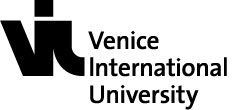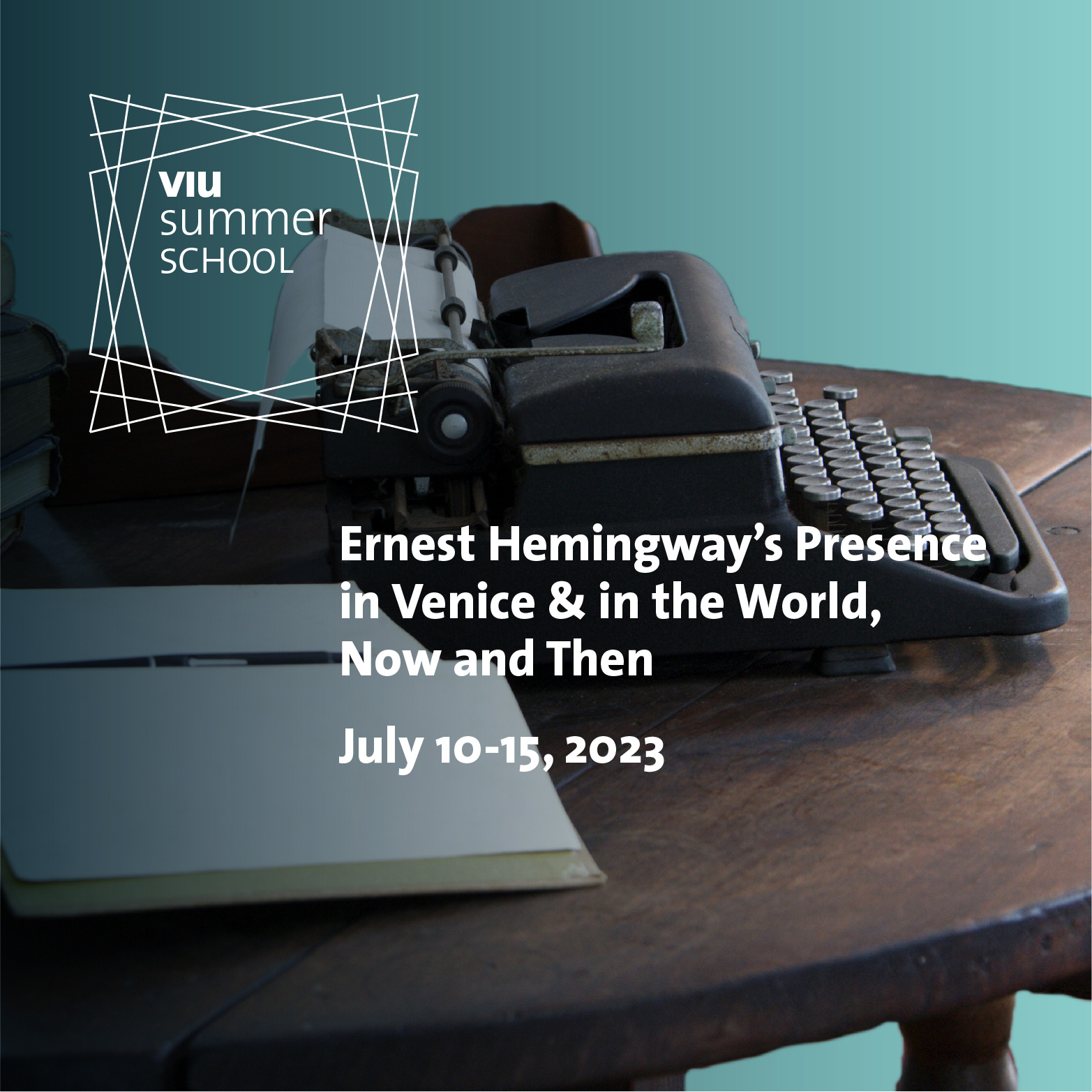July 10-15, 2023
Call for applications: Cancelled
This interdisciplinary Summer School will take its cues from a short selection of accessible texts to explore Ernest Hemingway’s presence and influence in Venice and beyond. As for other places where he lived and worked—Pamplona, Key West, Paris, Havana—Hemingway contributed to the international aura of Venice. Reading his works in the Venetian context will not only give students access to one of the most important Modernist writers, but it will also lead them to an examination of history, geography, cultural critique, language, and culture centered in Venice. With his ubiquitous presence in Venice and in the World, Hemingway offers us a key to many an aspect of modern literature and culture.
Reading Hemingway today in the privileged context where these texts take place or were created will enable students to discover a master of style of the English language and understand why Hemingway may be one of the most influential western authors in modern literature. As an American author in Venice, he sheds light on the complicated relations US culture has entertained with Italian culture and world cultures. His relation to languages is particularly interesting, and many things are gained in translation when we read him in such an interdisciplinary and international context.
Faculty
Boris Vejdovsky, University of Lausanne, Switzerland (Scientific Coordinator)
John Bolin, University of Exeter, UK
Mark Cirino, University of Evansville, USA
Michèle Longino, Duke University, USA
Luca Pes, Venice International University, Italy
Who is it for?
Graduate students (MA and PhD) from various disciplines: Literary Studies, American Studies, Global Studies, History, Politics, Media and Film Studies, Cultural Studies, Art, Gender Studies, Queer Studies.
Methodology and structure
Each day will feature a major lecture exploring a key aspect of Hemingway’s work and presence in Venice, followed by a two-hour seminar and discussion. The afternoon workshops will help students to get an in-depth understanding of the texts in close reading sessions of Hemingway’s works, other cultural texts including film, and other art works. As the course advances, its interdisciplinary character will become increasingly important as afternoon sessions will be used to combine the different approaches. The course will propose excursions and in situ lectures that will enable students to fully grasp the relation between Venice and Hemingway.
Learning outcomes
- An in-depth understanding of Hemingway’s impact on world literature and culture.
- A theoretically informed view of U.S. cultural and linguistic influence on the twentieth century and beyond.
- A fine appreciation of Hemingway’s works from the artistic and stylistic points of view.
- A comprehensive view of the historical context of Hemingway in Venice and of the importance of the city in global culture.
Fees
Students of VIU member universities:
€ 500 incl. VAT.
Students of other universities:
€ 1000 incl. VAT.
The fees will cover tuition, course materials, lunches in the San Servolo cafeteria (6 working days on campus), and social events.
Student participants will be responsible for covering their own travel expenses to and from Venice and local transportation.
VIU Alumni are eligible for a reduced fee.
PhD candidates and post-docs from universities in EU universities may be eligible for Erasmus+ mobility grant support. Candidates should consult the International Office in their own university for information about the calls for applications for funding. VIU will provide any supporting documentation requested for such applications. Contact VIU Erasmus office: erasmus@univiu.org
Accommodation on campus
Complete information about the costs of accommodation on campus is available in the Brochure and Application form.
Applicants must submit the application form, a letter of motivation – which should include a brief description of the candidate’s research interests, a curriculum vitae and a photo.
Credits
Number of ECTS equivalence: 3
Students will receive a certificate of attendance at the end of the course.
The Program will admit up to 25 student participants.
For further information: summerschools@univiu.org





























